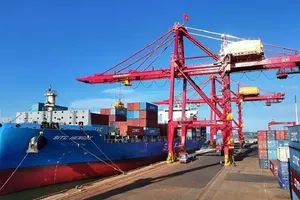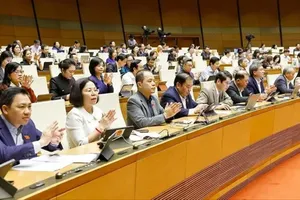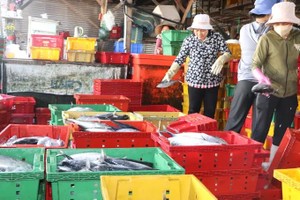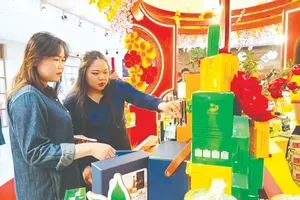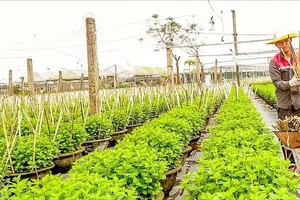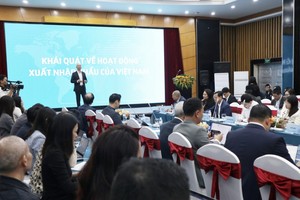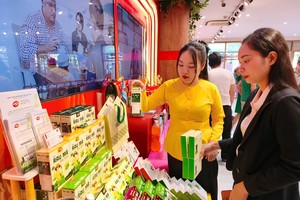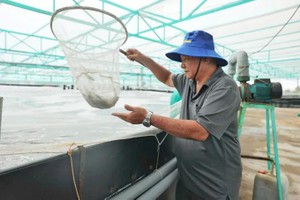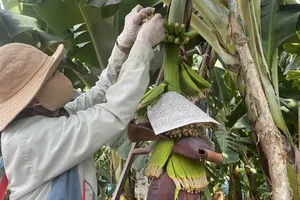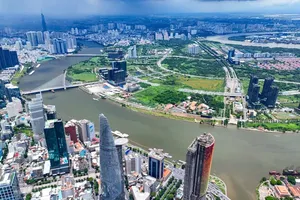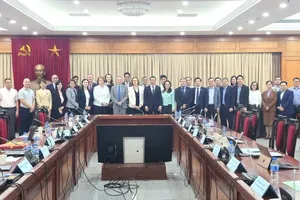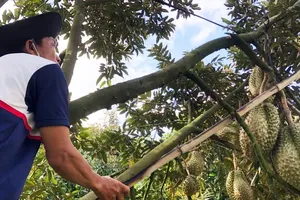The proposal was made after the VPA received the dispatch No.10756/BTC-CST by the Ministry of Finance in mid-September in which the ministry proposed to increase import tariff on PP plastic pellets from 3 percent to 5 percent.
According to the explanation of VPA, raising import duty to 5 percent on the main ingredient will cause extremely negative impacts on the fledging plastic industry of Vietnam. It will even unintentionally fortify foreign products in gaining market share in Vietnam, lower budget revenue, push domestic PP plastic manufacturers to the verge of bankruptcy, cause higher unemployment and affect social security.
According to calculation of this association, with the current import price, if import tariff is increased to 5 percent, additional cost that plastic enterprises importing from Middles East countries, Japan, South Korea and China have to pay in the next five years will be more than VND1.2 trillion. Although when import tariff on PP plastic pellets is raised, plastic enterprises can buy PP plastic pellets from countries in the free trade agreement, they will not be able to buy them at the same price as before (though import tariff from these countries is zero percent) as sellers will raise their prices to the same level as those of countries outside the free trade agreement. The additional cost that plastic enterprises have to pay for countries in the FTA in the next five years will be nearly VND3.63 trillion. The consequence will be high cost prices, causing Vietnamese plastic products to be unable to compete with imported products from Southeast Asia, South Korea, China and Japan.
According to Mr. Ho Duc Lam, chairman of Rang Dong Plastic Company cum chairman of the VPA, with the current situation of plastic industry, products will involve to imposing of anti-dumping tax and anti-subsidy at markets. Moreover, small and medium sized plastic enterprises have been facing difficulties when competing in prices with Chinese products.
Noticeably, amid the developments of the trade war between the US and China, hundreds of Vietnamese plastic enterprises might have to halt operation and thousands of workers will lose their jobs as Chinese enterprises dump their products or disguise their products as made-in-Vietnam products to evade tax. These are challenges that most Vietnamese plastic enterprises have been coping with. If there is no support and favorable conditions created by relevant authorities, it will even be difficult for Vietnamese plastic enterprises to survive, not to mention struggling to seize opportunities to develop amid global economic integration.
Therefore, raising import tariff on PP plastic pellets will unintentionally help foreign products in gaining market share in Vietnam, lower budget revenue, push domestic PP plastic manufacturers to the verge of bankruptcy, cause higher unemployment and affect social security.
According to the explanation of VPA, raising import duty to 5 percent on the main ingredient will cause extremely negative impacts on the fledging plastic industry of Vietnam. It will even unintentionally fortify foreign products in gaining market share in Vietnam, lower budget revenue, push domestic PP plastic manufacturers to the verge of bankruptcy, cause higher unemployment and affect social security.
According to calculation of this association, with the current import price, if import tariff is increased to 5 percent, additional cost that plastic enterprises importing from Middles East countries, Japan, South Korea and China have to pay in the next five years will be more than VND1.2 trillion. Although when import tariff on PP plastic pellets is raised, plastic enterprises can buy PP plastic pellets from countries in the free trade agreement, they will not be able to buy them at the same price as before (though import tariff from these countries is zero percent) as sellers will raise their prices to the same level as those of countries outside the free trade agreement. The additional cost that plastic enterprises have to pay for countries in the FTA in the next five years will be nearly VND3.63 trillion. The consequence will be high cost prices, causing Vietnamese plastic products to be unable to compete with imported products from Southeast Asia, South Korea, China and Japan.
According to Mr. Ho Duc Lam, chairman of Rang Dong Plastic Company cum chairman of the VPA, with the current situation of plastic industry, products will involve to imposing of anti-dumping tax and anti-subsidy at markets. Moreover, small and medium sized plastic enterprises have been facing difficulties when competing in prices with Chinese products.
Noticeably, amid the developments of the trade war between the US and China, hundreds of Vietnamese plastic enterprises might have to halt operation and thousands of workers will lose their jobs as Chinese enterprises dump their products or disguise their products as made-in-Vietnam products to evade tax. These are challenges that most Vietnamese plastic enterprises have been coping with. If there is no support and favorable conditions created by relevant authorities, it will even be difficult for Vietnamese plastic enterprises to survive, not to mention struggling to seize opportunities to develop amid global economic integration.
Therefore, raising import tariff on PP plastic pellets will unintentionally help foreign products in gaining market share in Vietnam, lower budget revenue, push domestic PP plastic manufacturers to the verge of bankruptcy, cause higher unemployment and affect social security.
